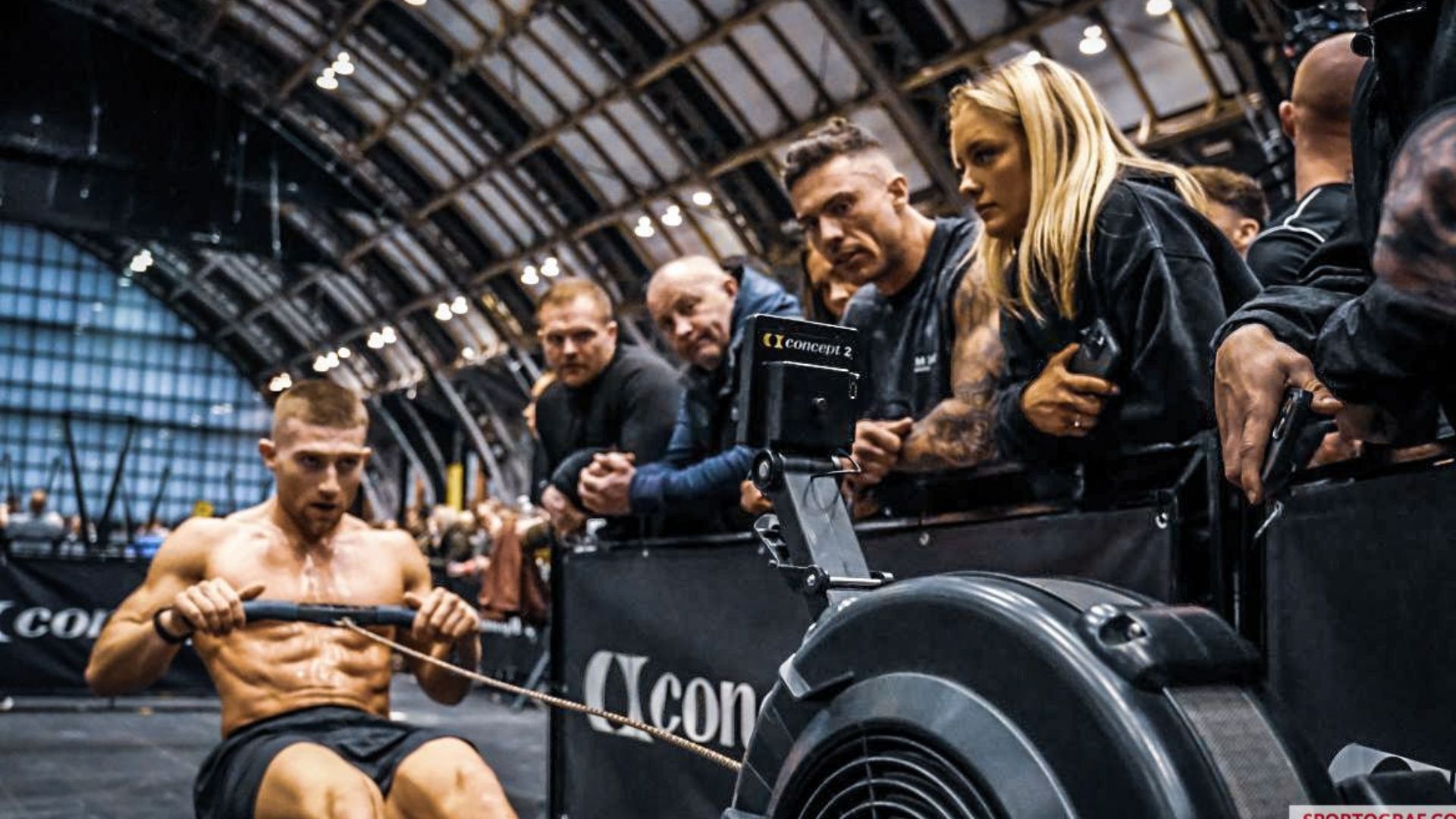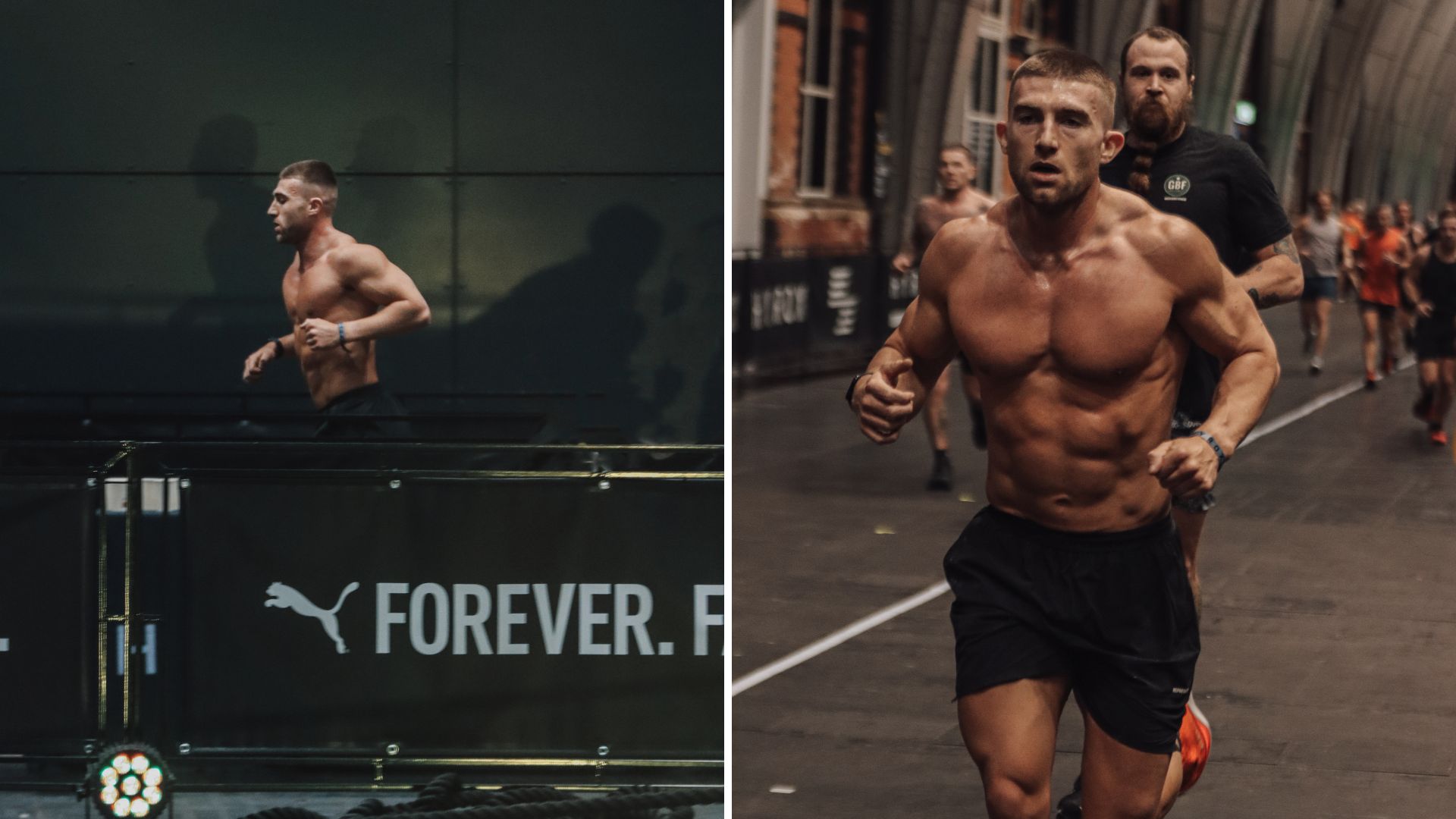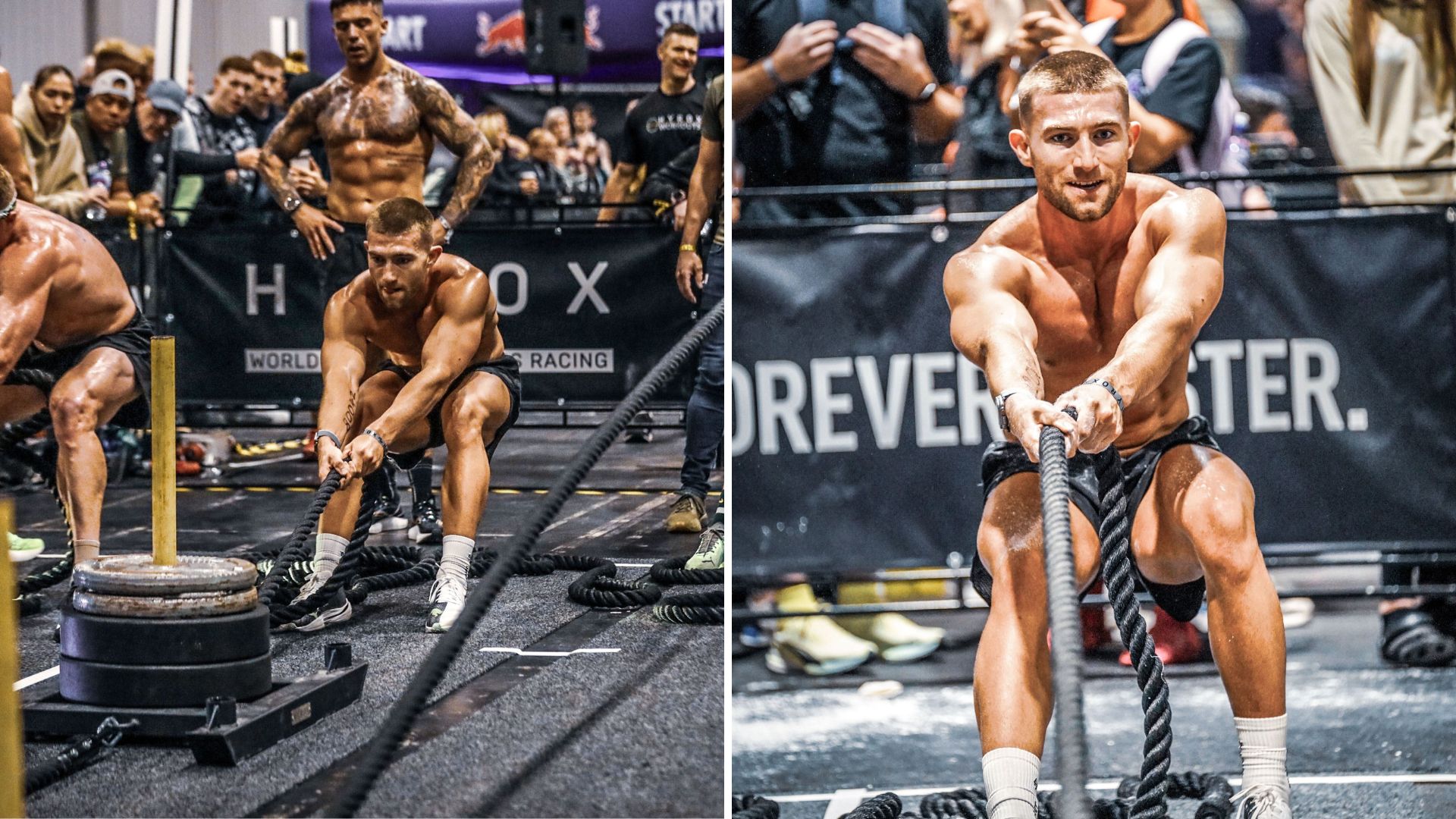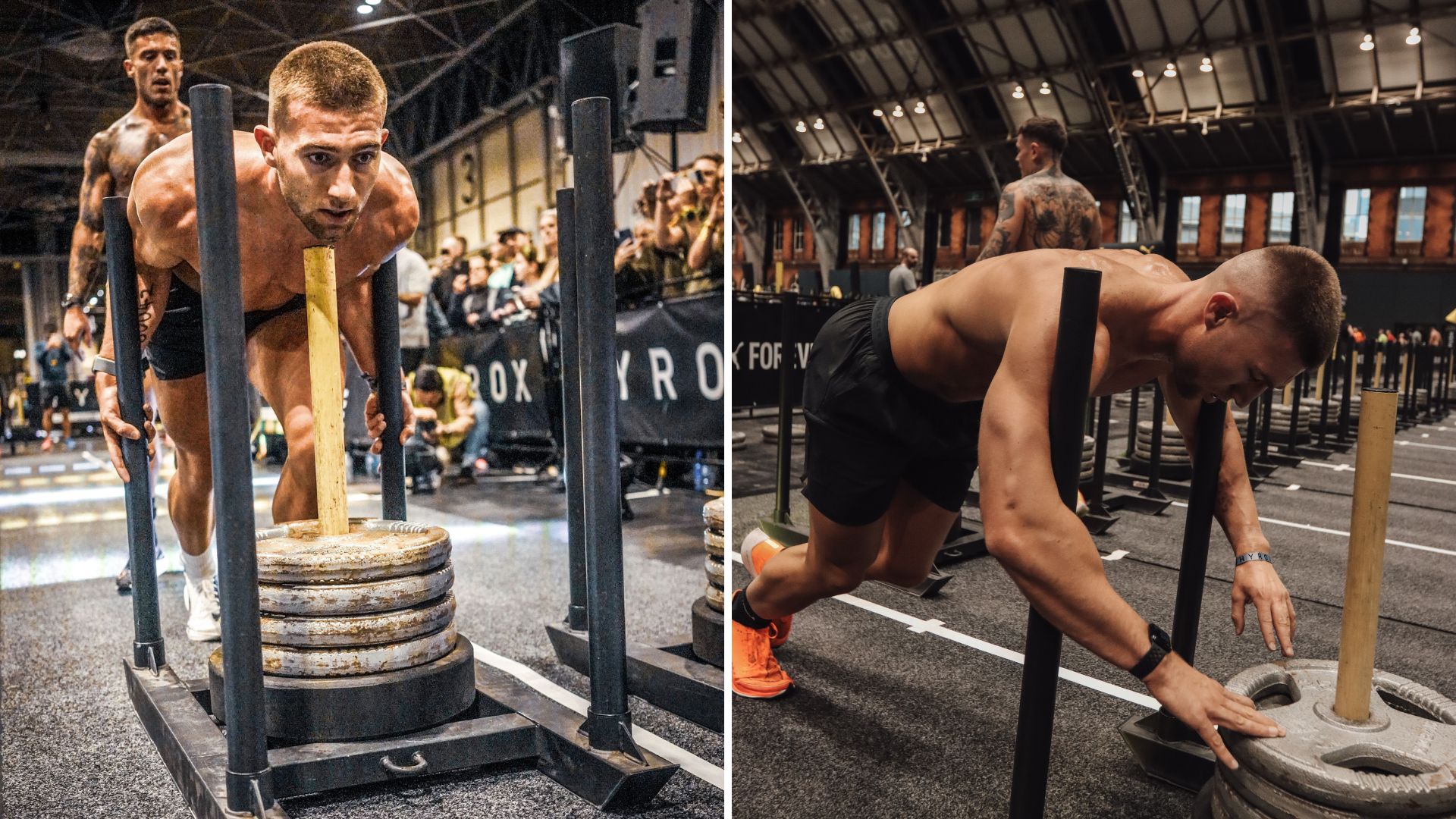5 race day mistakes everyone makes at HYROX, according to a fitness expert
HYROX Master Trainer, Jake Dearden, advises what to avoid doing on race day to help you get the best time possible


Knowing what you need to do for a HYROX is important, but it’s also just as important knowing what not to do. Little slip-ups on race day are completely normal, even the pros make them, but they can cost you precious time and energy.
One person who knows a thing or two about navigating a successful HYROX is HYROX Master Trainer and 247 Represent Athlete, Jake Dearden. Not only is Jake a HYROX Open and Pro world record holder, but he’s also completed 11 HYROX’s back-to-back in one weekend. So, you could say he’s pretty experienced at knowing how to handle HYROX.
Below he's shared seven mistakes that he sees (most) people making during the event and how to avoid them, so you can go out and give race day your best shot and, most importantly, enjoy it!
1. Not pacing yourself

Jake says this is by far the most common slip-up people make at HYROX, and it’s also one that could cost you your race. “It’s very easy to get caught up in the excitement of the event and go out too hot, doing much faster splits than you had planned for,” he says.
“This will leave you overly fatigued at the later stages of the race and may mean you get a slower time than if you’d stuck to slower paces from the start. It’s therefore important to plan out the paces you want to run each kilometre and stick to this to ensure you have the energy to complete all workout stations at your desired times."
2. Walking the Roxzone
This is the area that you have to go through to get to your workout station. It can really catch people as Jake explains many end up walking through it or taking a pit stop at the water station. “It loses you significant time throughout the race,” he says.
“Mentally it can be harder to start running once you have stopped, so try to get moving straight away, even if it's at a slow jog. It's also crucial to hydrate properly in the build-up to the race to ensure you don’t feel the need to keep stopping for water to prevent losing time at the water station. Of course, if you feel dehydrated do still stop for water if you need it!"
Get all the latest news, reviews, deals and buying guides on gorgeous tech, home and active products from the T3 experts
3. Using just your arms on the sled pull

Mastering the correct technique for all HYROX stations is important, but the one that people often get wrong is the sled pull. Many will try and heave the sled using just their arms— with a hand-over-hand technique— Jake advises to use your entire body.
"If you watch the pro’s, they pull the sled using their whole body, picking up the rope and walking backward, dragging the sled with them,” he says. “You have a two-metre box to work with, so use it! It’s a much more efficient way to use your energy, rather than completely fatiguing your arms .”
4. Fueling incorrectly
Not getting your pre-race nutrition on point will critically affect your performance. You want to be doing this the day before and the morning of race day.
“Aim to eat around 5g of carbohydrates per kg of body weight the day before and, on race day, ensure you eat a carbohydrate-based snack. I would also advise fueling yourself during the race with either gels or sweets to supplement your glycogen stores, which will naturally deplete."
5. Poor sled push form

Again, there are multiple ways of pushing the sled across that notoriously difficult carpet, but the one Jake says you want to really avoid is pushing it with straight arms. "It’s inefficient and you won’t get the desired power output to push the sled,” he explains.
“The most efficient way to execute the movement is with your arms bent and elbows by your side, your torso parallel to the floor and your head above the sled. This will allow you to put your whole body weight into the push."

Bryony’s T3’s official ‘gym-bunny’ and Active Staff Writer, covering all things fitness. She is a certified personal trainer and also a part-time fitness instructor. In her spare time, you will find her in her natural habitat - the gym - where her style of training is a hybrid of bodybuilding and powerlifting. Bryony loves writing about accessible workouts, nutrition and testing innovative fitness products that help you reach your fitness goals and take your training to the next level.